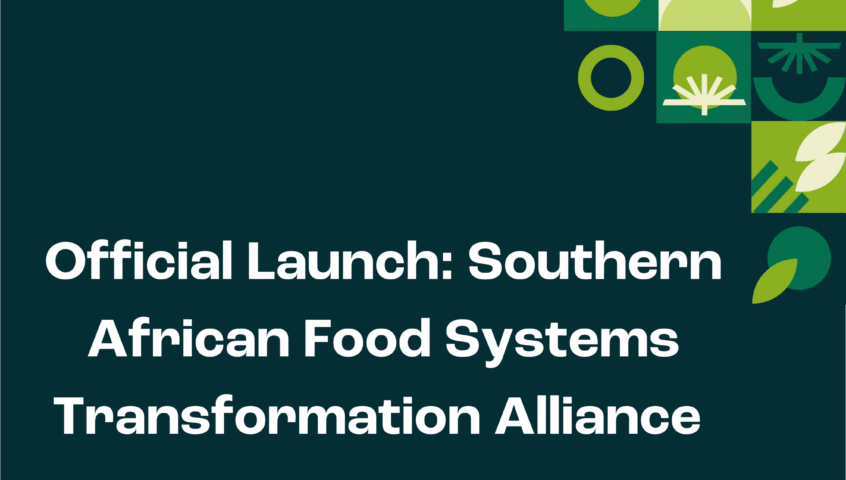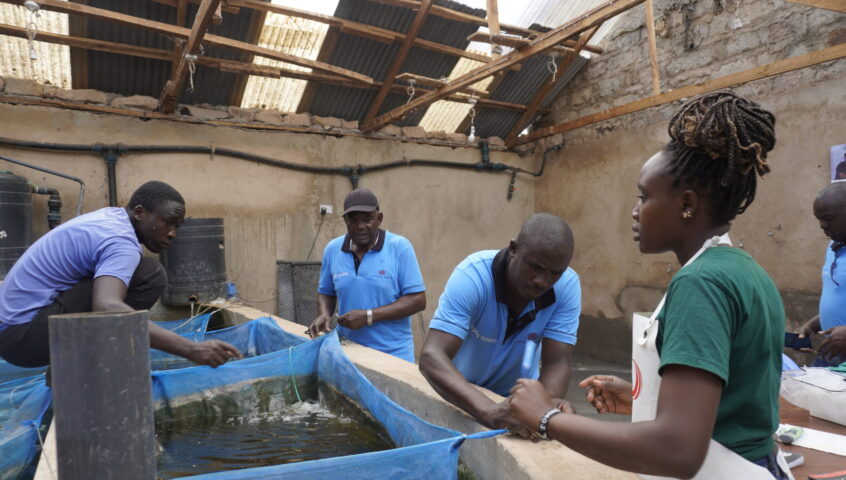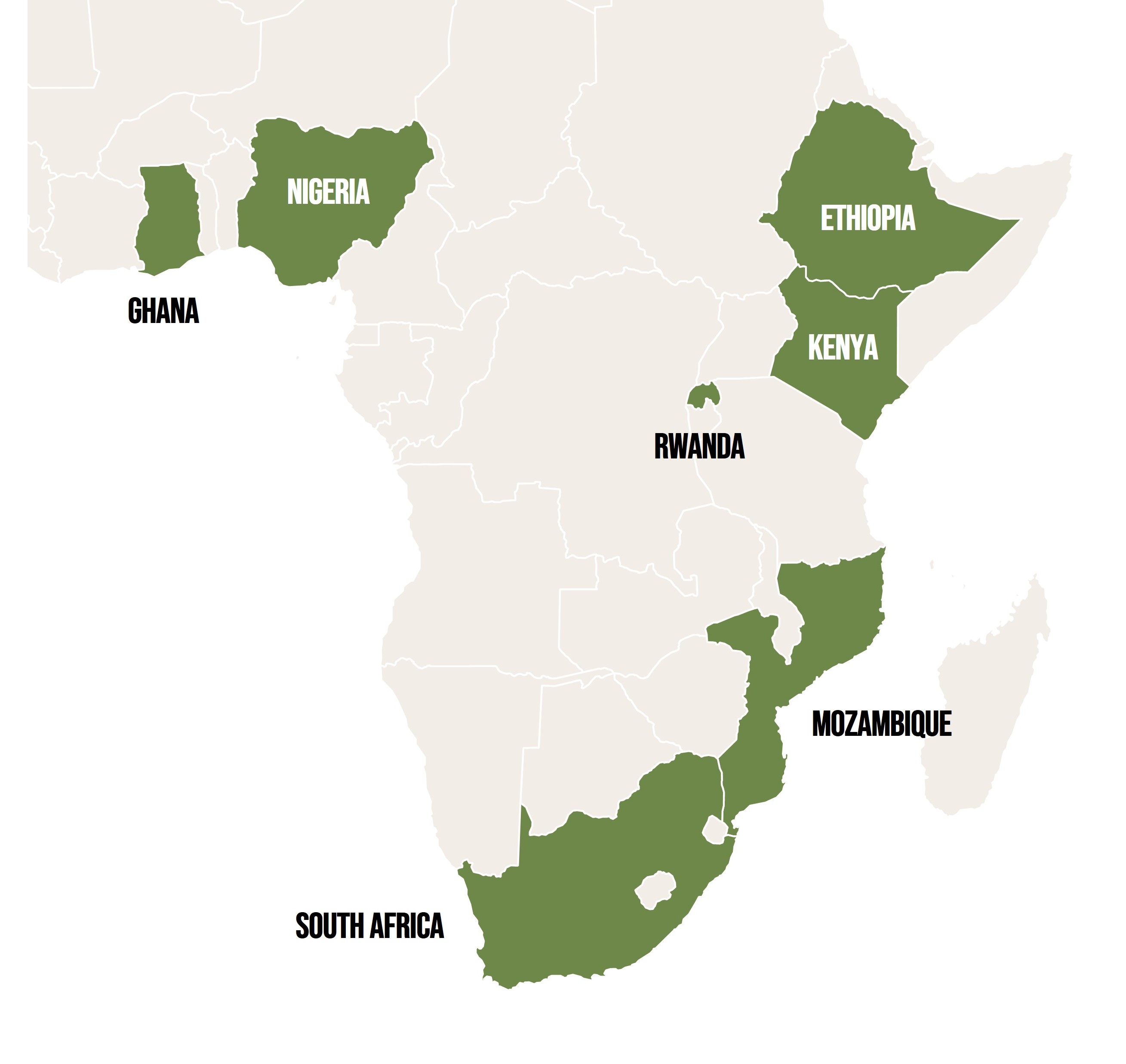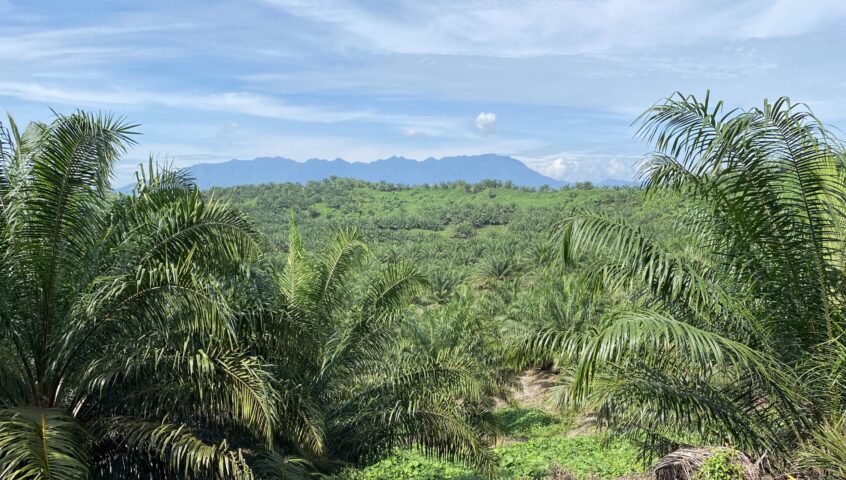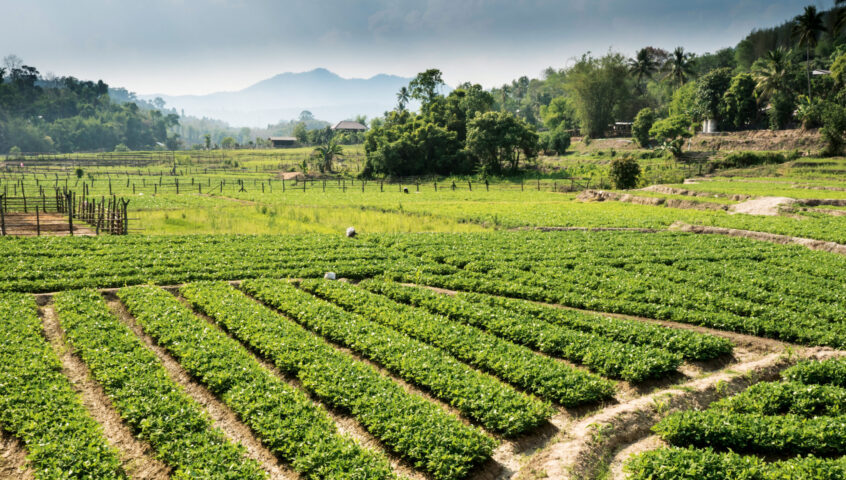-
Increasing food security
-
Increasing incomes
-
Creating jobs
IDH’s Value Chain Development model focuses on Africa and is aimed at creating economically viable, inclusive and resilient agricultural value chains. The model includes several steps, including increase investments, know-how and investability of the SMEs) to improve resiliency, independence and the ability to build and strengthen a local food system, increase the intra-Africa trade and create a large number of jobs that supports the needs of people in Africa.
We have witnessed the transformation of local SMEs, and the farmers they source from, into competitive businesses that meet global standards, attract competitive prices for their products, and create sustainable jobs, particularly for women and youth.
How Value Chain Development works for companies and their African supply chains
COUNTRY VALUE CHAIN DEVELOPMENT
Value chains, where a country has comparative advantage are identified and supported to increase commercialization, improve operations to produce high quality products that are price competitive.
DEVELOPING SUPPLY BASE FOR AFRICAN MARKETS
Working with retailers, multinational brands and traders to build their local supply-base and address challenges in developing reliable African supply bases that meet their volume and quality specifications.
Current value chain development work
- Cassava: Nigeria
- Horticulture: Rwanda, Nigeria
- Aquaculture: Nigeria, Mozambique, Kenya
- Grains in partnership with the Mastercard Foundation: Ghana
- Dehydrated vegetable and herbs in partnership with Unilever: South Africa, Nigeria
- Nestlé: Ghana, Nigeria
- AIF (DSM) partnership amongst others on maize: Rwanda
- Invest in Africa: Nigeria, Ethiopia
Contact us
Through working together, we support systems change
About Value Chain Transformation
No publications found.






